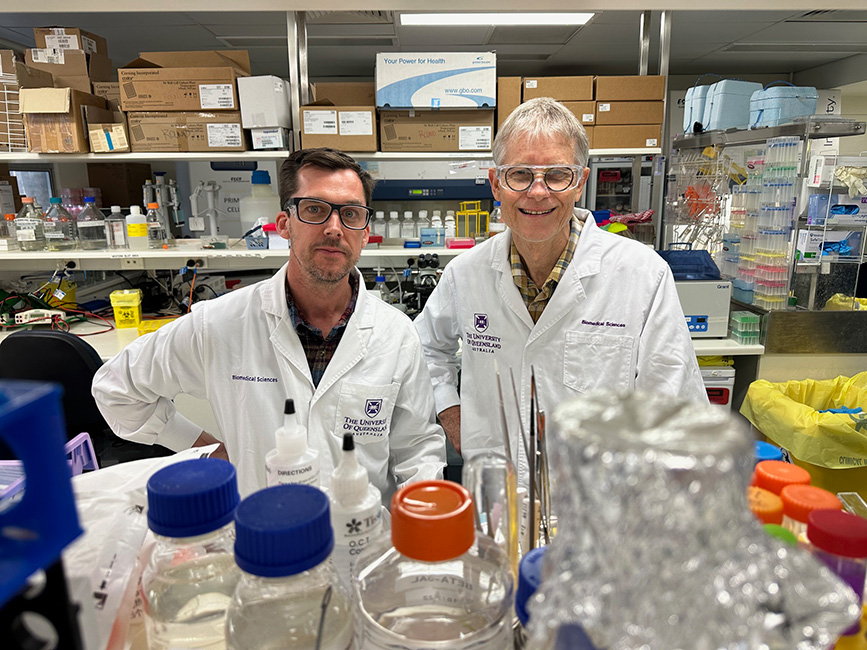
Children’s Health Queensland researchers have tested a new drug that could prevent sepsis deaths in children.
The drug, invented by University of Queensland’s (UQ) Professor Andrew Boyd and Professor Perry Bartlett, which helps prevent organ failure by restoring the health of the cells lining the patient’s blood vessels, has been successfully tested in mice.
Dr Mark Coulthard from Queensland Children’s Hospital (QCH) Paediatric Intensive Care Unit said pre-clinical testing results, using human blood samples, were also promising.
“The reason for organ failure in sepsis patients is because the endothelial cells lining blood vessels become leaky, resulting in abnormal fluid shifts which ultimately shut down the blood supply,” Dr Coulthard said.
“We have identified markers for vascular damage in children admitted to hospital with fever and suspected infection, and the protein-signalling pathways associated with this in the cells.
“The drug we have developed targets these interactions, to restore the function of vascular endothelial cells.”
Professor Trent Woodruff from UQ's School of Biomedical Sciences said the new approach addressed an underlying cause of organ failure, while previous unsuccessful attempts had focused largely on the immune response.
“Sepsis is referred to as the ‘graveyard for the drug companies’ because despite the investment of significant resources and more than 100 clinical trials, there is still no effective treatment which modifies the host response,” Professor Woodruff said.
“A drug that targets and restores the vascular endothelium would potentially reduce sepsis-induced organ damage and death.”
Dr Coulthard said the researchers were encouraged by the results of pre-clinical testing.
“We tested blood samples from 91 children admitted to hospital with fever and suspected infection, and noted changes in the biomarkers similar to those in our mouse studies,” he said.
“This suggests the drug could be effective in humans as well.”
Read the full UQ develops new drug for sepsis - UQ News - The University of Queensland, Australia.